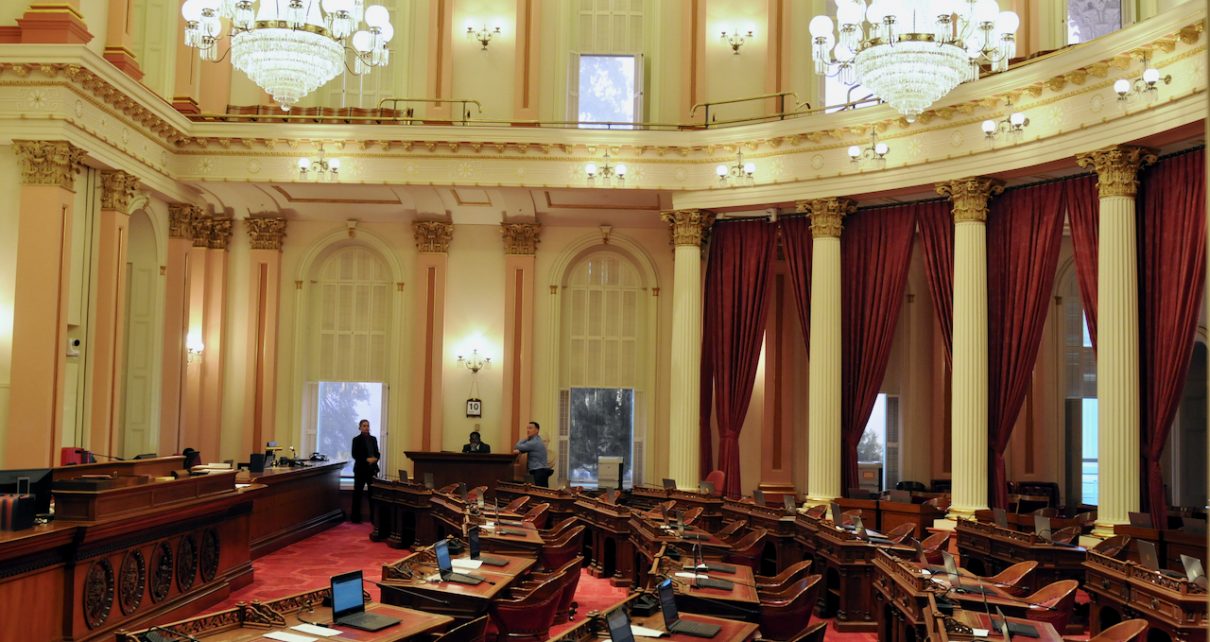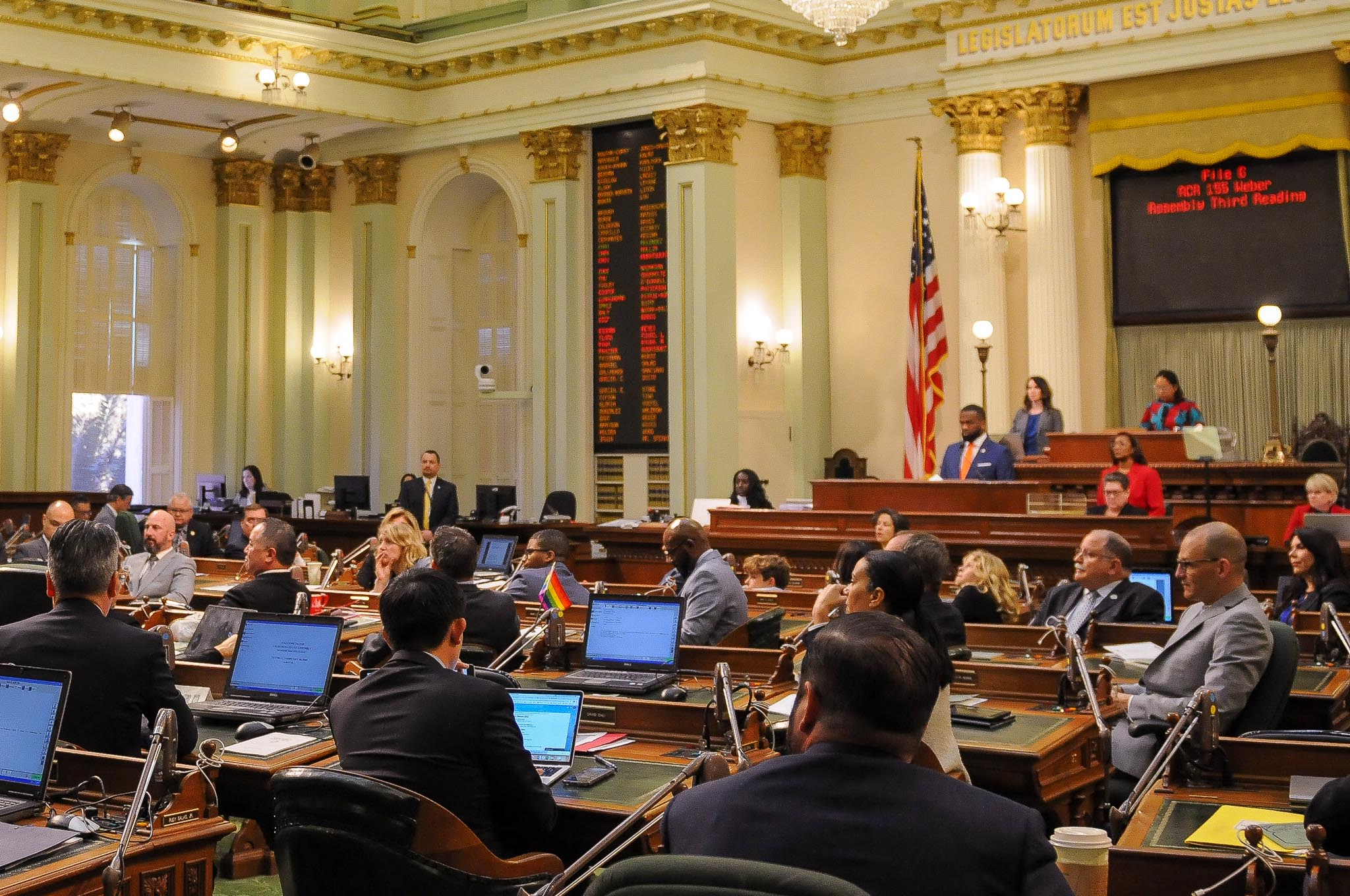
California Senate Chambers. (Photo: Kevin Sanders for California Globe)
Can California Budget Trailer Bills Create New Offices?
It is rarely the case on ‘day one’ that such a department is ready to go
By Chris Micheli, March 22, 2024 7:37 am
A colleague raised an interesting question recently – can a budget trailer bill create a new executive branch state department or office? The reason that this is an intriguing question is because urgency statutes cannot “create or abolish any office.” This begs the question whether budget trailer bills are urgency statutes.
Let’s start with Article IV, Section 8(d) of the California Constitution, which provides for urgency clause measures. The following is the language of Section 8(d):
(d) Urgency statutes are those necessary for immediate preservation of the public peace, health, or safety. A statement of facts constituting the necessity shall be set forth in one section of the bill. In each house the section and the bill shall be passed separately, each by rollcall vote entered in the journal, two thirds of the membership concurring. An urgency statute may not create or abolish any office or change the salary, term, or duties of any office, or grant any franchise or special privilege, or create any vested right or interest.
Obviously, the last sentence is key to determining the answer to the question initially posed: an urgency statute may not create or abolish any office … or duties of any office. Because budget trailer bills take effect immediately pursuant to Prop. 25, which was adopted by the state’s electorate in 2010, can these trailer bills contain language to immediately create a new state office or department.
Some colleagues are of the opinion that Prop. 25 created a loophole to expand state government faster by majority vote, despite the existence of Section 8(d). Over the thirteen years since the enactment of Prop. 25, a number of new state departments and offices have been created in budget trailer bills. The Office of Health Care Affordability is a fairly recent example.
But does Section 8(d) apply to the creation of a new state department regardless of Prop. 25? The limitation in Section 8(d) applies to an “office.” Does this term refer to an elected office or a department or agency in the executive branch of state government? Other sections of the state Constitution differentiate among terms. For example, Article IV, Sections 5 and 12 use the word “agency,” and Section 5 also uses the term “state government board.” Article IV does not use the word “department.”
Because Section 8(d) uses the term office, along with the phrase “chang[ing] the salary, term, or duties of any office,” this language appears directed at an elected or appointed position, rather than a department or agency. While the use of a budget trailer bill to create a new executive branch agency or department might be allowed under Prop. 25 (a court has not weighed in on this question), such a budget trailer bill might violate the spirit of the urgency prohibition against the creation (or abolishment) of an office.
Moreover, as a practical matter, what creating a new department by a budget trailer bill that takes effective immediately upon enactment has meant is that a new executive branch department can be immediately created, but then is expected to be immediately ready to serve the public or the regulated community. However, it is rarely the case on “day one” that such a department is ready to go. More likely, they may have just one transferred staff manager and most likely will need several months at least to be fully staffed and ready to serve the public.
As a result, it might be a better practice for a budget trailer bill to abide by the spirit of Section 8(d) and have any new office or department commence its operations no earlier than January 1 following the budget trailer bill’s enactment. At the very least, this would allow the Legislature to budget for one-half of the fiscal year and provide ample opportunity for the department to get the office in place before it is required to commence operations. Otherwise, these “immediately created” departments will continue to be working at a chaotic pace because they lack sufficient “ramp up time” before opening their doors for service.
- Legislative Intent Does Not Equate to a Mandate - April 27, 2024
- Frequently Asked Questions about State Agency Ethics Training - April 26, 2024
- Frequently Asked Questions about When Elected Officials Take Office - April 25, 2024




